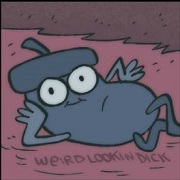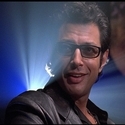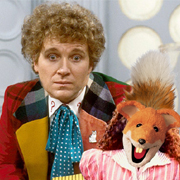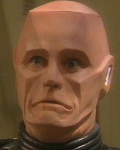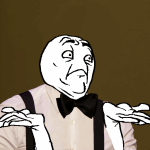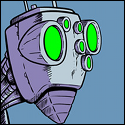|
Which season of Doctor Who should get a Blu-ray set next? This poll is closed. |
|||
|---|---|---|---|
| One of the black-and-white seasons |
|
16 | 29.63% |
| Season 7 |
|
7 | 12.96% |
| Season 11 |
|
1 | 1.85% |
| Season 13 |
|
0 | 0% |
| Season 15 |
|
2 | 3.70% |
| The Key to Time |
|
21 | 38.89% |
| Season 21 |
|
0 | 0% |
| Season 25 |
|
7 | 12.96% |
| Total: | 54 votes | ||
|
Open Source Idiom posted:
|
|
|
|

|
| # ? May 25, 2024 19:15 |
|
I didn't know this exists. The BBC has a lot of the shooting scripts for Doctor Who on their website, available to download and read if you want to see how the show was at the writing stage. https://www.bbc.co.uk/writers/scripts/whoniverse Seasons seven and eight are missing for some reason, but you can check out everything else. I'm kind of curious to read a Chibnall script or two to see what's on the page.
|
|
|
|
OldMemes posted:And telling Whittaker to do as little research as possible was a terrible creative decision. e: it's very telling of the Chibnall era that genuinely cool moments like the animated part of Can You Hear Me? or the Doctor lying about drawing a map in It Takes You Away just slip out of everyone's brains. e2: Jerusalem posted:The Battle of Ranskoor Av Kolos stands out, it sounds phony and yet RTD could make "The Shadow Proclamation" sound really loving cool and ominous and intriguing when it SHOULD sound like a title even George Lucas would reject for being "too on the nose". Hell look at ATLA, a show where all the nations are colour-coded for your convenience and most of the fantastic animals are cut-and-shuts of real world animals with names that reflect that, and it works. I might've rolled my eyes a few times at first, but it gets rid of a lot of overhead that lets me focus on the actually important bits. Paul.Power fucked around with this message at 18:32 on Feb 15, 2024 |
|
|
|
Season 12 Episode 8: The Haunting of Villa Diodati Written by Maxine Alderton, Directed by Emma Sullivan Mary Shelley posted:They hurt you, this modern Prometheus. You loved once. And were loved in return. You do not wish to kill. https://www.youtube.com/watch?v=kj7IEl9CShI I... really like this episode! I don't know why I didn't remember it better, or have a higher opinion of it, especially when I look back at my own posts at the time it aired and I was full of praise for it then too! But whatever the reason... it's good! Genuinely good! Not good-with-a-caveat or good-by-contrast. It's just good! It's atmospheric, well-paced, looks good, has some very clever writing in parts (helped by largely direct quotations or references to work by some very, very, very talented writers!), includes some great moments of comedy in appropriate points, nd the underlying framework of Frankenstein helps inform and and in parts subvert even the weaker sections such as the shift in focus once the Cyber-Man shows up. The Doctor is written stronger here, feels more closely tied in with her own history (her demands to her companions are unmistakably informed by the apparent fate of Bill Potts) and overall I ended this episode feeling extremely, extremely positive about what I'd just seen even knowing what was to follow it. This is a GOOD episode of Chibnall-era Doctor Who, and I don't want to be churlish given he's still the showrunner and would be all over the making of the episode, but it's notable it's one of the few that is credited purely to one writer that is NOT Chibnall. Written by Maxine Alderton, best known before now as a writer for The Worst Witch, she would also co-write what was arguably the best episode of the following season, Village of the Angels. She seems to have a very, very strong grip on horror/supernatural-themed episodes and I hope we see her write again.  The episode opens at Villa Diodati by Lake Geneva in June of 1816. It's a famous night, where Percy Bysshe Shelley, Mary Shelley (who at the time was not married to him and was technically Mary Godwin), Lord Byron and Dr. John Polidori decided to hold a contest to see who could write the best horror story. It was The Year Without a Summer, it was a (forgive my bad writing) a dark and stormy night, and the romantics were full of creative energy and excitement at the prospect of terrifying each other. Polidori would produce The Vampyre from this: a story initially credited to Byron (and inspired in part by sections of writing Byron did that night, but still undoubtedly Polidori's creation), and one that would have a massive impact on modern depictions of vampires in media going forward. But the most famous of the works first concieved on the night would be Mary Shelley's Frankenstein; or, The Modern Prometheus, which is considered to be one of the earliest examples of "Science Fiction", making it technically a precursor to Doctor Who itself! So it's no surprise that the companions wanted to be a fly on the wall for this historic night, or that the Doctor would be so keen to run with it (though of course, this story kinda/sorta maybe clashes a little with the 8th Doctor Big Finish adventures featuring Mary Shelley as the Doctor's brief companion). Which makes it all the more hilarious that, after coming knocking on the door with a bullshit story after the telepathic paper gets water-soaked and can't bluff them in, all of them sit in watch in a different kind of horror to discover that Byron, Polidori, Mary Shelley and Claire Clairmont are just kind of insufferable gossips who are only interested in dancing and flirting and gossiping some more! They have no interest in writing beyond getting Byron to read them spooky stories from The Fantasmagoriana, and most peculiarly of all Percy Shelley is nowhere to be seen, even though he was absolutely at that gathering according to history.  The story is paced astonishingly well, managing to fit a tremendous amount into a very small time. By the time the reveal of the "Death God" is made, if the story had hit the cliffhanger sting and played the theme music at that point I wouldn't have been surprised at all, but instead the story goes another 10 minutes or so! From the initial uneasy suffering through the incessant gossiping of their hosts through to the increasingly disturbing and apparently supernatural happenings to the confusion of the house becoming a maze to the discovery of Percy the episode does a wonderful job of keeping everything moving along and never making things feel too compressed. The gossiping also serves as a good intro to the historically well-documented personalities and histories of the involved characters. We learn that Mary and Percy have caused somewhat of a scandal with their relationship, particularly as she has taken to using his last name despite not being married (her father argued vehemently against marriage as a concept up until the moment he found out his daughter had taken his lessons to heart!). We discover that Claire Clairmont is obsessed with Byron and has done everything in her power to force herself into his company, and that she's wracked with fear that her obsession and passion are not reciprocated. We learn that Polidori is a somnambulist, and that his inability to properly sleep makes him prone to angry outbursts and dramatic flourishes (he challenges a horrified Ryan to a duel and won't be shaken of the notion). Plus of course what has probably already seeped well into pop culture public consciousness: that Byron was a very smug, very narcissistic and entirely too-pleased-with-himself horndog who also happened to be a very, very, very, very, very, very good writer! Byron figures out that the Doctor's poorly constructed and quickly scrambled together cover story was bullshit, but naturally (for him) assumes that she and the others are fans who have come trying to sneak a peek at his 3rd canto. His face falling when the Doctor off-handedly remarks,"Nah, it goes on a bit, that one" is hilarious, as is his unease when she mentions Ada. The Doctor of course meet the grown Ada earlier in the season, but at this time Byron had only recently abandoned his wife and children so the casual mention of his daughter can't help but put him slightly on the back foot. The Doctor, meanwhile, is far more interested in trying to get readings with her sonic on what is clearly an off "vibe" to the house. Mysterious things are happening. A vase is violently tossed through the air. A painting falls from the wall. A silent serving woman and child appear and disappear abruptly. Graham goes looking for a toilet and finds himself climbing stairs that take him back to the floor he was already on. A skeletal hand moves of its own accord, crawling along the wall violating gravity until it eventually attacks Ryan. A dark, shrouded figure appears momentarily in peripheral vision and is gone as quickly as it is looked at. When the Doctor manages to destroy the hand and figures out it is from the 15th Century (by tasting the remains!), Byron reveals that he has collected the skeletal remains of a 15th Century soldier from the Battle of Morat, as part of his collection of "relics of war".   It's at this point where the assumption might be that this must be the source of the strange goings on, and it being Doctor Who it will turn out to be an alien relic of some sort that reanimates the dead, perhaps even giving Shelley some inspiration for Frankenstein. That is absolutely NOT what happens though, and though it involves dragging a season arc I haven't been very onboard with into what was a very good standalone episode, I think it works strongly nonetheless. As an aside, the 8th Doctor audio Mary's Story featuring Mary Shelley also roughly around this same time period committed a sin that I strongly dislike, where the Doctor largely ended up delivering the entire story of Frankenstein to Mary and undercut her being the one that actually wrote it. This episode does a much better job in my mind of offering up a couple of neat tidbits that Mary is nearby to overhear but that by themselves don't take away from her obvious intellect and creative talent. The Doctor uses the word zombie and explains it means a reanimated body, and later explains the Cybermen as a body with parts replaced against their consent. When Mary sees the Cyberman, she sees a hulking figure made up of multiple people. But she is the one who refers to it as a "Modern Prometheus", she is the one who immediately notes that its horrific appearance does not necessarily have to mean it is evil, and that it can make a choice of who it wants to be without being prejudged by its appearance or its supposed nature. In typical horror movie/Scooby Doo fashion, everybody splits up to investigate the house and find themselves unable to escape it or indeed leave the rooms they are in. While there is a bit of repetition here, I like that the Doctor figures out to use the chimney as a way to communicate with Graham despite them being trapped on different floors, and that Polidori's sleepwalking leads to the realization that their senses are being tricked and they simply need to cut them off (closing their eyes) to find the doorways and passageways that were hidden from them. The "Death God" that has been regularly appearing over the lake in flashes of lightning, written about by Percy, finally fully realizes itself in the physical world. The Doctor immediately grasps that it is a Cyberman, albeit a strange one, armor torn and most of its human body(ies) still present beneath the surface. It's also an emotional one, storming through the house, babbling to itself, flying into rages when it cannot find what it is looking for. The Doctor notes it is a "Lone Cyberman", the others recognizing this as the subject of Captain Jack's warning, but the Doctor refuses to let them join her in confronting it. This is one of the strongest parts of the episode for me, as without ever explicitly saying it you get the sense of the 12th Doctor's grief and horror over Bill's conversion coming back to the surface. She's terrified of that happening to her new friends and forbids them from following her, which leads to a great bit of rules lawyering where Yaz points out she said they couldn't follow her... but not that they couldn't leave the room!   The Doctor's confrontation with the Lone Cyberman is another strong scene, as it taunts her and refuses to be shaken from its mission. But she easily ignores its goading ("Your vital signs betray a heightened state of anxiety" "Or as I call it, Tuesday!" while she in turn smoothly goads it and that DOES get through. She mocks its pointless tossing off a table "It was never going to be under there!", noting its unfinished state and remaining emotions, pointing out its drained weaponry and that it has clearly used a Time Hop, leaving it confused by her advanced knowledge and awareness of Cybermen despite her "primitive" status. All this of course is a way for her to slip past its guard and get information. It is looking for SOMETHING, demanding to see "The Guardian" (I wonder if it was an intentional misdirect to have Zellin reference The Guardians in the previous episode?) so it can take it from them. As it takes swings at her, reduced to its own primitive attempts to bash her head in with its weaponry no longer working, the Doctor easily ducks, continuing to enrage it all while constantly pointing out that it simply needs to talk to her and maybe, just maybe, she can help it. The companions meanwhile have discovered Percy's room is filled with mad scribblings, but there is no sense of Percy himself. He hasn't been off having an affair as Byron thought though, as he is discovered hiding in the coal cellar when Graham, Claire and Polidori look in the hopes of finding an exit from the house that hasn't been blocked off. His discovery leads to the Cyberman, which has let itself by struck by lightning to restore its power, suddenly start quoting Queen Mab, Mary of course recognizing her husband's words coming from the creature. The Cyberman has been temporarily connected with Percy, discovering he is "The Guardian", and now having all the information she came for and knowing the now armed Cyberman has the information it wants too, the Doctor scarpers. She discovers baby William on the floor, his nanny (and poor Fletcher, the valet who had the best "this loving guy" reactions to Byron's bullshit) murdered by the Cyberman in its earlier search but the baby left unharmed. Reunited with the others, they head to the cellar where the Doctor scans Percy who is able to force the Cyberman to be teleported to another part of the house when it arrives too. He is the one who turned the house into a maze, prevented anybody from being able to enter or exit until the Cyberman broke through, and was in fact the source of the mysterious supernatural happenings seen earlier like the animated skeletal hands, the knocked about vase and painting, and the brief flashes people got of him trying desperately to communicate with them. He explains that he found a strange silver substance in the lake before the storm rolled in and when he touched it, it infiltrated his body. Suddenly he couldn't communicate or be seen by the others, his mind was filled with strange symbols he scribbled in his room, and he felt an overwhelming need to keep the searching Cyberman from finding him. The Doctor, having joined her mind with his, explains that he has been infected with advanced Cyber-technology from the far future: it's the Cyberium, a powerful artificial intelligence used by the Cybermen to collect data, develop strategy and help them in their conquests as part of their insatiable need to survive (Because they MUZZZT SURVIVE! THEY MUZZZZT). It appears to be a version of, presumably even more advanced than, the Cyberiad from Nightmare in Silver. Where once Cyber Leaders ran squads of Cybermen, then Cyber Controllers lead whole armies, to Cyber Planners powered by Cyberiad leading Empires, now the Cyberium does it all... except somebody sent it back in time, robbing the Cybermen of their ace-in-the-hole, and though it is never established who in this episode, the Cyberium itself seems in no great hurry to return to the future and the Cybermen, actively working against its return. Perhaps the Cyberium itself simply reflects the desires/consciousness of its "Guardian"? I'm often critical of this era of the show raising more questions than it answers, because usually I feel it doesn't answer because it doesn't HAVE those answers. Here though, I think it works, the characters as well as the viewers have found themselves dumped into somebody else's story entirely, and they're scrambling to keep up with only limited information to work with.   It's here I feel the story is at its weakest, though it comes after a VERY strong confrontation between Mary Shelley and the Cyberman where she notes it spared her son and appeals to its ability to be more than it should be, you can see that it is drawn to and tempted by the notion that it could just... stop. Except it decides to double down after she correctly guesses it once had children of its own, snarling that it slit the throats of its own children when they joined "the resistance". It appears that this Cyberman, who identifies himself as "Ashad" was a collaborator, somebody who took the notion that Cyber-Conversion and continued life was better than fighting back against a seemingly unstoppable army and dying, and saw the attempts of those who valued freedom more as dangerous and putting the lives of others (particularly Ashad!) at risk. In that sense he IS a Cyberman, incomplete conversion or not, because he MUZZZT SURVIVE regardless of that survival being nothing but survival for its own sake. Sneering and roaring, reveling in the power and strength his partial conversion gives him and fighting for a future where his conversion would be completed and his own personality completely shackled down in favor of unthinking, unfeeling conformity, he threatens to kill everybody in order to force the release of the Cyberium. Percy can't release it from his body, not from unwillingness but because he simply doesn't know how, and as Ashad rants that death "transforms us", the Doctor grasps the solution, psychically connecting with Percy again and showing him a vision of his coming death only four years hence. The Doctor's logic makes sense, after earlier giving Ryan both barrels over him pointing out that Percy might have to die now in the past to save billions in the future, she can trick him into dying in order to release the Cyberium, which in turn ends the IMMEDIATE threat to their lives. But she has no reason to think Ashad - who is clearly insane, either from the partial conversion or before it - won't just kill them all anyway, and no way of knowing that the Cyberium, once released, would be able to be claimed by her instead of Ashad. She does claim it though, needling Ashad again that she's the better host, and this is where the episode is REALLY at its weakest, as Ashad simply... threatens everybody again so she releases the Cyberium and gives it to him. This needed shoring up, the Doctor in that moment exhibits a control of the Cyberium that Percy absolutely did not have and there's no reason given what we've seen to think she couldn't have uses its powers to exile Ashad, send him crashing back to the future or out into space or trap him in an inescapable room or something. There's also no reason again to think that Ashad won't simply kill them once she gives it access to all Cybermen knowledge and strategic thinking. But she does give it up, and Ashad does simply just zip straight back to the future without touching them, and that all leaves a sour taste in my mouth in what is otherwise a very, very strong episode.  I do however like that the Doctor tells the companions afterwards that this was part of a 2 step plan: Doctor: Saving Shelley was step one. Yaz: What's step two? Doctor: Fix the mess I created in step one. She plans to head to the future and prevent him from rebuilding the Cyber Army, knowing that she can get the numbers scribbled down by Percy to help her locate the exact time and place she needs to go to. They head off, the Doctor apologizing to Percy for the "sneak peek" while Mary - already taken with bleak, romantic images of death like Percy himself - simply notes that every moment together will be precious, though she might perhaps not think that if she knew how soon his drowning was coming. Polidori meanwhile is delighted to hear Claire dismiss Byron's offer of a "lie down", after earlier in the episode openly flirting with "Mrs. Doctor" in front of her, using her body to shield him when threatened, and openly mocking her. "The spell is broken" she declares, which is entirely in keeping with history as Clairmont grew to loathe Byron (thought mostly as a result of his treatment of their child, as she was at this time already pregnant) and would later remark in life that Byron gave her "a few minutes of pleasure, but a lifetime of trouble" which is one hell of a burn. The Doctor and companions leave, though not before a neat bit of business where Graham asks how the ghostly servant and child fit in and everybody else remarks that they never saw them, the Doctor agreeing that ghosts don't exist... unless they do! The final scene is rather odd though, as we cut to a month later and see Byron reading Darkness, with a shot of the Doctor in the TARDIS smiling over the line "she was the universe". I'm not actually sure what the intended reading is here, given the poem is seemingly about apocalypse and the end times (in keeping with the threat of the Cyber Army) and a subversion of Biblical passages indicating death, destruction and pessimism would be present despite any victory against them. That's a very pessimistic viewpoint to place over an image of the Doctor smiling, and perhaps the intended reading is simply a surface level one of "she is the universe" to indicate an exuberant, celebratory viewpoint of the woman who saved their lives? I don't know, far smarter and more learned people than me could probably run through the symbolism and meaning. For me, it's an odd finish, but that and the Doctor's rather forced-feeling decision to give the Cyberium to Ashad because he needed it for the next episode doesn't detract from my overall positive feeling. I've called out a lot of bland, uninspiring and non-memorable episodes from Chibnall's era, but this episode isn't one of those. It's a good episode. It's a drat good episode! I wish we could have had more like this. Index of Doctor Who Write-ups for Television Episodes/Big Finish Audio Stories. Jerusalem fucked around with this message at 09:15 on Feb 15, 2024 |
|
|
|
I'm glad you enjoyed the episode but I can't rate it as highly as you do. I found Ashad to be a laughable villain, and I can't let the incredibly clunky ending go so easily. I'd say it's a 4/10 episode, which I guess makes it's one of the best of the Chibnall era?
|
|
|
|
|
The Mary Shelley episode was good and I actually remember what happens in it! I think it sort of fizzles out at the end, though. Not in a way that ruins the whole episode like Kerblam! but enough that it feels like it just has some third act problems that undermine the horror.
|
|
|
|
I don’t remember a lot of specifics, but I remember that that episode happened! Which is more than I can say about most of series 12 and 13. I might need to give this one a rewatch at some point.
|
|
|
|
Bicyclops posted:The Mary Shelley episode was good and I actually remember what happens in it! I think it sort of fizzles out at the end, though. Not in a way that ruins the whole episode like Kerblam! but enough that it feels like it just has some third act problems that undermine the horror. Honestly the fizzling out for me was "Oh, it's a cyberman. Well." I know it's never going to be an actual supernatural thing but the whole episode was set up like maybe it could have been and then here comes Angry Halfhelmet.
|
|
|
|
It's a good episode, but being tied to what comes after definitely drags it down A Frankenstein episode with Cybermen is a great idea
|
|
|
|
Also removing the 8/Mary Shelley adventures from canon is its worst crime.
|
|
|
|
I remember being underwhelmed by the Lone Cyberman for two reasons: a) implying that Mary Shelley just wrote a story based on a Cyberman encounter kind of undermines her own creative contributions, which is the opposite of what a show with the ostensible focus on diversity and progressive politics seemed to be going for should be doing, and b) they don't seem to have much of an idea for what a half-converted Cyberman would actually be like beyond "a bit less Cyberman-y than the full fat ones", thereby making him a bit more generic as a villain. I know you point out how this episode does better than Mary's Story on a), Jerusalem, but I feel like it still reduces Mary to coming up with pithy phrases to illustrate the ideas the Doctor has explained, rather than arriving at the creative ideas herself. Warthur fucked around with this message at 18:21 on Feb 15, 2024 |
|
|
Warthur posted:I remember being underwhelmed by the Lone Cyberman for two reasons: a) implying that Mary Shelley just wrote a story based on a Cyberman encounter kind of undermines her own creative contributions... Yeah, I was a bit confused that Jerusalem thinks the episode doesn't do this as it seems pretty evident to me that it 100% does. Everything about the Cyberman in this episode is there to influence Mary Shelley into writing Frankenstein based on it. The birth by lighting over the lake, his face being partially visible so she doesn't just write a story about a robot instead, her overhearing from the Doctor other important parts of the story. That the episode ends with one of the other, lets face it, much less influential writers reading from one of their stories and now Mary Shelley reading from Frankenstein is insane.
|
|
|
|
|
Fil5000 posted:Honestly the fizzling out for me was "Oh, it's a cyberman. Well." I know it's never going to be an actual supernatural thing but the whole episode was set up like maybe it could have been and then here comes Angry Halfhelmet. Yeah, the cyberman showing up is the point where it turns into a shrug. But there was a pretty good set up, at least! Also , Dr. Frankenstein was "the modern Prometheus" since he was stealing metaphorical fire from the gods and then suffering the consequences. Calling the creature, which is the cyberman in this story, "the modern Prometheus" makes absolutely no sense. The_Doctor posted:Also removing the 8/Mary Shelley adventures from canon is its worst crime. Those events got Time Warred. Or maybe it was a diffwrent Mary Shelley. Random Stranger fucked around with this message at 17:09 on Feb 15, 2024 |
|
|
|
It's best to not assign too much mavity to Dr. Who's time shenanigans.
|
|
|
|
The_Doctor posted:Also removing the 8/Mary Shelley adventures from canon is its worst crime. Yeah, not just Mary's Story but notably Marc Platt's The Silver Turk which is the 8th Doctor and Mary Shelley and a single Cyberman who gets stuck by himself and is forced to adapt to the technology of the time (Moffat wasn't the first to come up with wooden Cybermen). There are other parallels too; like Ashad here, the Cyberman in The Silver Turk has a distinct name and an identity, though that one is better developed and a great deal more emotional and sympathetic. He gets a bitter-sweet gay subplot, though it goes exactly where you'd think it'd go given that a) the script is about possessive love and b) he's a Cyberman. I reckon it's quite good, but I've a soft spot for Marc Platt scripts. Though, as pointed out above, all four BF Mary Shelley stories are riffs on Shelley's writing, and basically make her come across as a hack who just loosely plagiarized from the world around her with the confidence that no-one else would be able to call her out. I recall, though, that the lightning thing is at least her idea, and you can see her building and refining her ideas across some of the stories. IMO it's not quite as bad. A.o.D. posted:It's best to not assign too much mavity to Dr. Who's time shenanigans. Those stories are explicitly a function of the Time War, so it's relatively easily reconciled as a product of temporal instability.
|
|
|
|
After finishing up The Black Guardian Trilogy I decided to jump back to Troughton and watch The Enemy of the World. I thought this was pretty good with the notable exception of Troughton doing brownface along with a pretty rough attempt at a Mexican accent. He plays Salamander well outside of that but it does drag it down. Still though, the story is interesting and Salamander is a good villain besides that. The last episode was rushed and ends very suddenly but even so it's a good example of how to do a Doctor Who story that doesn't feature any aliens, robots, or other monsters. I'm not surprised that this was written by the same guy that did Power of the Daleks as this has a lot of the same focus on interpersonal human conflict between different factions of varying degrees of trustworthiness.
|
|
|
|
Maybe it's just because I'm judging it against Mary's Story which really does a disservice by basically having the Doctor spoonfeed the ENTIRE Frankenstein story to Mary Shelley, but I do think that it's important that it is Mary and Mary alone who looks at this disfigured, monstrous appearing creature and immediately looks past that and appeals to its better nature, treating it like a human man, trying to connect on a personal level, noting that it saved a child, asking what it's name is etc. That Ashad turns out to be a loving lunatic regardless doesn't change that it's clearly Mary Shelley behind the notion in Frankenstein that the monster doesn't HAVE to be monstrous, and that Dr. Frankenstein's treatment of it, his immediate rejection of his own creation and the hounding of the people who judge it on face value that cause much of the death and destruction that follows. Frankenstein, left to his own devices, simply wants to learn and grow, tries to find himself a name etc ("I should be Adam, instead I am your Fallen Angel"). The murder of Victor's wife is of course a monstrous deed, but it follows the creature seeing Victor tearing the "mate" he had made for it to pieces, and when Victor finally dies the creature notes that revenge brings it no peace. I would have preferred this just be a standalone story, not tied in with the wider season arc since I can't help but feel it is diminished by what follows (And Ashad is NOT a particularly deep character, though he's better here than in the story that follows) and you could even keep the Cyberman in that case since a Cyberman seems fitting enough for a Frankenstein story. But I really do think it is a standout of Season 12 and I would love to see this writer work on the show again.
|
|
|
|
Mary Shelley already was inspired to write Frankenstein by actual events. In real life, not in doctor who. Stories of galvanism where early electricians passed currents through the corpses of criminals (sometimes dismembered, sometimes not) were big news at the time she wrote Frankenstein. An author being inspired to write fiction by real life events, their own experiences, and the world around them isn't a failure of their imagination or creativity, and to paint it as such is really bizarre to me, no creative work is ever made in a vacuum, and it's not like the episode is "the exact plot of Frankenstein happens and Mary Shelley just transcribes it".
|
|
|
|
Resolution and Spyfall both have the bones of good stories marred by pacing issues and a few really dumb things (the dad thing having no thematic connection to the dalek, the Doctor deciding that the Master deserved to get holocausted, Ada and Noor getting mind wiped when plenty of other historical figures have been allowed to remember the Doctor). The biggest story issue though is Chibnall deciding to re-destroy Gallifrey. Why? After the whole big deal of the 50th and Heaven Sent/Hell Bent, Gallifrey really got destroyed again by the Master offscreen???
|
|
|
|
SirSamVimes posted:Resolution and Spyfall both have the bones of good stories marred by pacing issues and a few really dumb things (the dad thing having no thematic connection to the dalek, the Doctor deciding that the Master deserved to get holocausted, Ada and Noor getting mind wiped when plenty of other historical figures have been allowed to remember the Doctor). Oh god I always forget that in Spyfall the Master is foiled by being exposed as being Indian in front of Nazis. Like, gently caress, Doc, really?
|
|
|
|
The weirdest part is that she had already framed him as a British spy and the soldiers were coming to arrest him. She had already beaten him and then she disables his perception filter and says "Now they can see who you really are!"
|
|
|
|
Maybe there's just something broken with my brain but I've never understood why that's a problem. The Nazis were genocidal serial killers, but so is the Master. They're just turning their poisonous ideologies on each other.
|
|
|
Open Source Idiom posted:Maybe there's just something broken with my brain but I've never understood why that's a problem. The Nazis were genocidal serial killers, but so is the Master. They're just turning their poisonous ideologies on each other. It's because he's played by an actor of Indian heritage. The Doctor is weaponizing the Master's skin color to ensure he has a particularly nasty fate in the hands of real world fascist. You really don't see how that's a grotesque step too far? Also, there's a massive difference between the fictional genocides that the Master can be held responsible for and the real world perpetrators of the Holocaust! If you hand someone over to this version of the Master at worst they might get shrunken down, which is portrayed as bad, but we have no real world frame of reference for, however we know exactly what fate the Doctor is condemning their best friend to because it's a well documented real world war crime. PriorMarcus fucked around with this message at 12:26 on Feb 16, 2024 |
|
|
|
|
That whole beat came across like something plucked from one of the more edgelord wilderness years novels. It’s a very grubby thing to make an “aha! The Master meets an ironic twist of fate!” moment out of.
|
|
|
|
PriorMarcus posted:It's because he's played by an actor of Indian heritage. The Doctor is weaponizing the Master's skin color to ensure he has a particularly nasty fate in the hands of real world fascist. You really don't see how that's a grotesque step too far? I don't, I guess, because to me the entire thing is just sort of bogus from the moment the episode decided to tackle the Holocaust in a family entertainment show that's sort of doing this silly James Bond pastiche nonsense. The ending is sort of a continuation of that shallow iconography and just doesn't phase me. What does bother me is that my reaction is so indifferent but everyone else has these really strong reactions, which makes me feel like there's just something wrong with my brain because I can't see it the way others do. Like, I just don't see the Nazis as an effective deterrent against the Master. He's a one-dimensional fantasy monster, with no real life or interiority (something I think is even true of Missy, though she has slightly more depth). I don't believe the characters ever in any "real" danger, and in this case I don't think he's even gonna suffer. The Nazis are barely gonna slow him down as he shoots, crushes or just eats his way through them. Because he's silly and shallow, and the Nazis here -- they're not silly, but they're also shallow in their own way. It's just Chibnall playing with action figures. It's interesting that people see it as a sort of clever win on the Doctor's part, when I just sort of shrug my shoulders and think "meh" like in pretty much every Chibnall script ever, so that could be part of it.
|
|
|
|
Open Source Idiom posted:Like, I just don't see the Nazis as an effective deterrent against the Master. The point isn't the in-universe consequences of the act, it's the real-world politics of it. Weaponising someone's race is Really Bad! Even if you don't like the person it's being done to!
|
|
|
|
I don’t think there’s anything wrong with being indifferent to it, that’s the typical response to any Chibnall script. I think the reason it stands out is that it’s such an un-Doctor thing to do. I could see it making sense from a different villain character, if I’m being charitable. Or even if there was a scene with Yaz or Graham or whoever being all “that was an incredibly hosed up thing to do, Doctor”, and she has to reckon with that. About how she loses her humanity when it comes to dealing with the Master etc, and she has to struggle against that in herself. But no, it’s just another (bad) Chibnall idea that goes nowhere. If you want to have your heroic protagonist do something like that, you need to at least unpack it.
|
|
|
|
Whenever I think about this sort of thing I am led inexorably to the conclusion that Chibnall is just kind of a shallow dude who doesn't think deeply about the subjects he writes about and doesn't expect anyone else to. Which is the frustrating thing about discussing the Chibnall era - anything of depth to discuss (like how weird a moment weaponising the Master's racial appearance is) happens by accident, and there's rarely enough substance to carry the conversation very far.
|
|
|
|
It’s very telling that it’s one of the more memorable “Things The Doctor Chose To Do To Advance The Story” from the whole Chibnall era, for entirely the wrong reasons.
|
|
|
|
Matinee posted:It’s very telling that it’s one of the more memorable “Things The Doctor Chose To Do To Advance The Story” from the whole Chibnall era, for entirely the wrong reasons.
|
|
|
|
Chibnall is good at doing big significant things that don't advance the story. See the whole Timeless Child info dump, which served the same narrative purpose in the series 12 finale as a set of jangling keys would have
|
|
|
|
Flying Zamboni posted:After finishing up The Black Guardian Trilogy I decided to jump back to Troughton and watch The Enemy of the World. I thought this was pretty good with the notable exception of Troughton doing brownface along with a pretty rough attempt at a Mexican accent. He plays Salamander well outside of that but it does drag it down Somehow, my memory made him a Spanish character (as in, from Spain) and I literally just rewatched an episode from it on Pluto. At least I had the correct language of origin (sorta)
|
|
|
|
To be clear my issue with it is a) what PriorMarcus already said and b) that it's THE DOCTOR doing it. I cannot think of a single incarnation of the Doctor up to this point that would have left ANYONE in the hands of the Nazis. Yeah the Doc's history with the Master is complicated but even after they turned Bill into a loving Cyberman just to mess with him he was trying to keep them alive.
|
|
|
|
PriorMarcus posted:It's because he's played by an actor of Indian heritage. The Doctor is weaponizing the Master's skin color to ensure he has a particularly nasty fate in the hands of real world fascist. You really don't see how that's a grotesque step too far? At worst that version of the Master could turn you into a soulless automaton and weaponize you against your own people. The worst any version did was promise you salvation from certain doom, drive you completely insane, cut off your head, and do that to every remaining member of your species in order to weaponize them against your ancestors.
|
|
|
|
Did the master do that personally? I thought it was just something that they did to survive, then he found them and brought them back to current day.
|
|
|
|
Boxturret posted:Did the master do that personally? I thought it was just something that they did to survive, then he found them and brought them back to current day.
|
|
|
|
2house2fly posted:Chibnall is good at doing big significant things that don't advance the story. See the whole Timeless Child info dump, which served the same narrative purpose in the series 12 finale as a set of jangling keys would have
|
|
|
|
Someone should've given that man a bunch of empty Dan Harmon Story Circles to fill in.
|
|
|
|
Matinee posted:I don’t think there’s anything wrong with being indifferent to it, that’s the typical response to any Chibnall script. I think that’s the offensive bit for me: the episode doesn’t register (or care about) that moment as a character moment. The Doctor has absolutely done worse in his time: ask the Family, or anyone on Skaro after the Hand destroys it. And Thirteen’s apparent callous disregard of the destruction caused by the Flux is far worse than this moment. I don’t even think it’s the most misjudged moment in Spyfall: Chibnall earlier gives us Thirteen being humiliated by the Master, in public, in a way that reads as creepy and sexual. Missie pushing Twelve’s boundries is less cringeworthy because Capaldi is an older white man and his Doctor’s fairly aristocratic; opting to punch down against Thirteen is bad enough without having a non-white Master doing it, given the history of “non-white men’s sexual attentions directed at white women.” I think this moment could play well registering both the Doctor’s anger about that past scene and especially about the Master killing ALL the TIME LORDS (how many children would that have been, Doctor?), and making this be Thirteen lost in righteous fury and perhaps regretting it a little later would at least be character development. But Chibnall doesn’t seem to care. Why should we? If the Master showed up in Demons of the Punjab pretending to be Indian and the Doctor exposed that he wasn’t, I think that’d be fine. And it’d obviously be terrible if the Doctor left the filter in place and used the psychic paper to establish for the Nazis that he was actually a British spy named Emmanuel Goldstein. As is, I feel like the really offensive part here is Chibnall not recognizing the thing: I feel like he’d say “Twelve left Missy to the Daleks, who are worse than Nazis, so what’s the problem here.”
|
|
|
|

|
| # ? May 25, 2024 19:15 |
|
I agree with all of the above. I wonder if one way to salvage something from the Time Lords being killed is to say it really was just the Citadel and the Time Lords who the Master killed. You could have the people of Gallifrey trying to make something of themselves with the Doctor guiding them. What happens when the facist upper class are disposed and the repressed majority have to build something better? This also means you sidestep the recurring loveable villain having killed millions of kids.
|
|
|
|


















